All but one hospital in Sudan’s battle zones closed or operating on ‘very limited capacity’
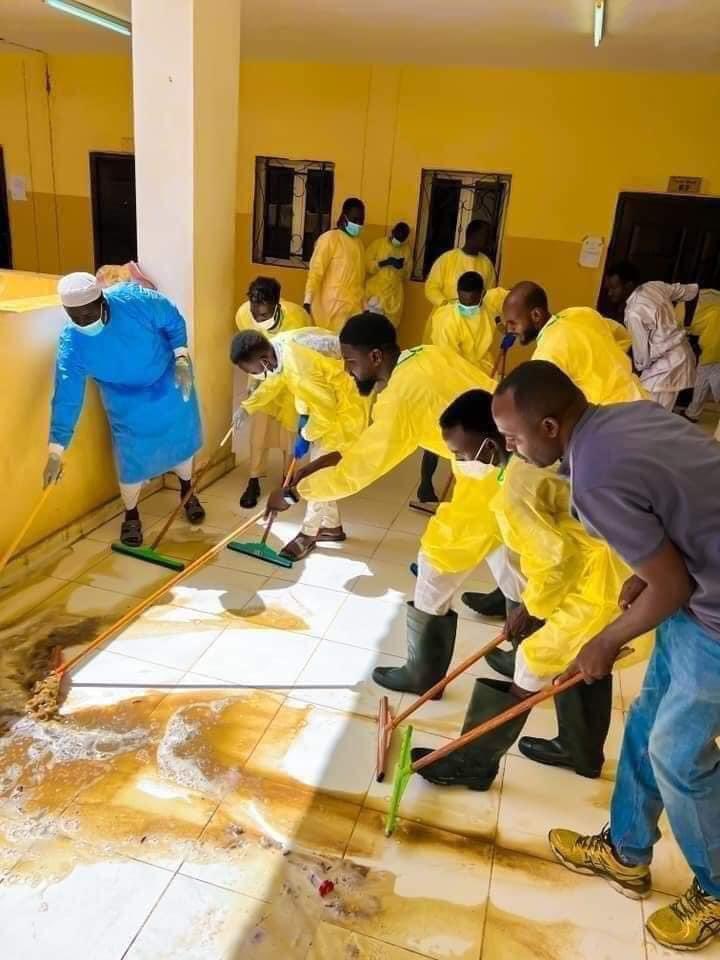
Youth assisting in El Fasher Hospital last week (social media)
KHARTOUM – May 1, 2023
The humanitarian situation in Sudan is worsening by the day as fierce fighting has flared up again and more health facilities have collapsed. According to the Sudanese Doctors’ Syndicate, at least 70 per cent of the hospitals in and near battlegrounds are out of service.
The doctors’ syndicate published a report on the health situation in Sudan yesterday, highlighting several critical updates and appealing to “all humanitarian partners” for immediate support.
The El Baraha Hospital in Khartoum North (Khartoum Bahri) was subjected to aerial bombardment on Saturday, April 29. The paediatrics department of the previously-evacuated Ibrahim Malik Teaching Hospital in Khartoum was subject to bombardment and shelling as well.
In total, 16 hospitals have been bombed “and 19 were forcibly evacuated by the warring military forces”.
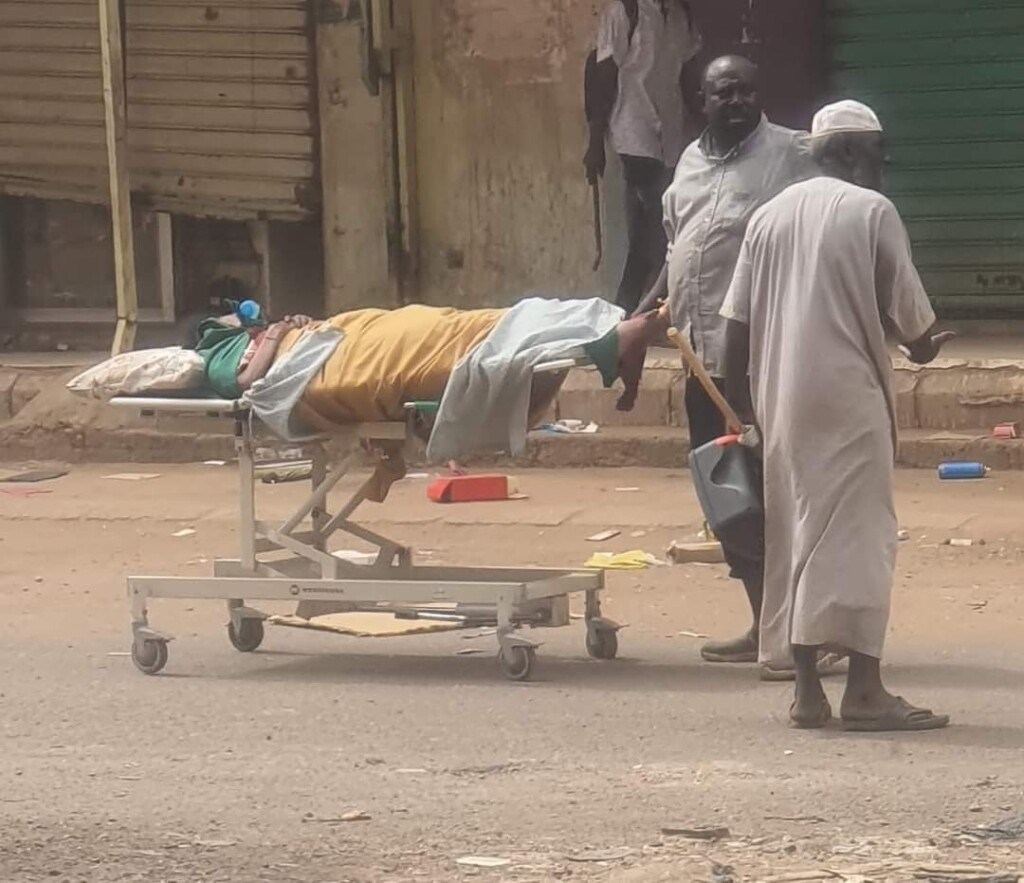
According to the Sudan Armed Forces (SAF) and social media users, the Sharg El Nil Hospital (East Nile Hospital) in Khartoum was forcibly evacuated by the Rapid Support Forces (RSF), who now use it as a military base. Patients in critical condition were forced out onto the streets according to these reports.
About 60 out of the 86 hospitals in and near battle zones are unable to function, whereas 25 out of 26 remaining hospitals are only able to operate “with very limited capacity”, the syndicate said.
“These hospitals are threatened with a complete shutdown due to lack of supplies, shortage of health staff, and lack of water and electricity.”
The Sudan Doctors Syndicate reported that there is only one partially functional operating room at the Kassala Teaching Hospital.
Atbara Hospital in River Nile state, which is receiving many displaced patients from surrounding towns, is running dangerously low on blood bags and obstetric medicines.
“Most hospitals are running out of oxygen, anaesthetics, blood bags, oxytocin, and misoprostol” and other equipment needed for obstetrics, the union wrote, and warned that “there is a mounting risk of hospital infections under the current conditions”.
‘There is a mounting risk of hospital infections under the current conditions’ – Sudan Doctors Syndicate
On top of childbirth services, many other urgent medical interventions are currently impossible. “The situation at renal dialysis centres is seriously dangerous,” the syndicate wrote for example. Roughly 12,000 patients are currently exposed to the risk of death from renal failure complications as most centres have run out of supplies. These centres usually handled 140,000 dialysis sessions per month.
Death toll
They explained that the total number of hospital-reported civilian deaths was 411, and the number of injuries amongst civilians was 2,023 on Saturday. The death toll published by the Sudanese Ministry of Health yesterday recorded at least 538 civilian deaths.
The exact death toll could be much higher according to the UN Office for the Coordination of Humanitarian Affairs (OCHA) in Sudan and the Central Committee of Sudanese Doctors (CCSD) as many bodies cannot be reached and most records only contain deaths reported by health facilities.
The SDTU confirmed 89 deaths in El Geneina, West Darfur, but said that there is no accurate count since all hospitals in the city are out of service. A local doctor’s association estimated the number of dead at 191 and the Sheikh of the Kerending camp for the displaced in El Geneina said that at least 180 have been killed.
In an interview with Radio Dabanga, the Assistant Commissioner for Refugees in Darfur said that hundreds of dead and wounded were not counted.
“The number of dead bodies scattered around the streets is mounting, and this is creating an environmental catastrophe,” the union wrote.
‘The number of dead bodies scattered around the streets is mounting’ – Sudan Doctors Syndicate
On top of the risks posed by decaying bodies, the herbage collection services have come to a complete stop and multiple cases of infections have been reported because people are resorting to drinking water directly from the Nile River as safe drinking water is unavailable to many.
Border crossings
The situation at border crossings is particularly dire, especially at the Wadi Halfa crossing into Egypt and along the border crossings to Ethiopia and South Sudan.
Several people, including elderly women and children, have died from dehydration, heat strokes, and infections and fevers, possibly from drinking contaminated water.
“It is very important to provide aid, not only at border crossings, but to people going through cities along the exit routes, where towners and villagers are sharing their meagre supplies with generosity,” the SDTU wrote.
Many are walking hundreds of kilometres to reach border crossings or safer places within Sudan. The route from Khartoum to Wad Madani, capital of El Gezira, followed by thousands, is 160km.
Humanitarian aid shortages
The syndicate also said yesterday that it was “alarmed by media reports quoting international organisations that medical aid has reached Sudan, when our hospitals are suffering from such grave shortage”.
“Hence, we request all partners to reflect the reality, not the plans or hopes, in their communication with the media.”
The Sudan doctors called for an end to the fighting, respecting the principles of medical neutrality, safe humanitarian corridors for medical aid, patients, ambulances, and health personnel, and the immediate mobilisation of airlifts to get medical supplies into Sudan.
It also called on all humanitarian partners to “kindly share with us your available stocks positioned inside Sudan”.
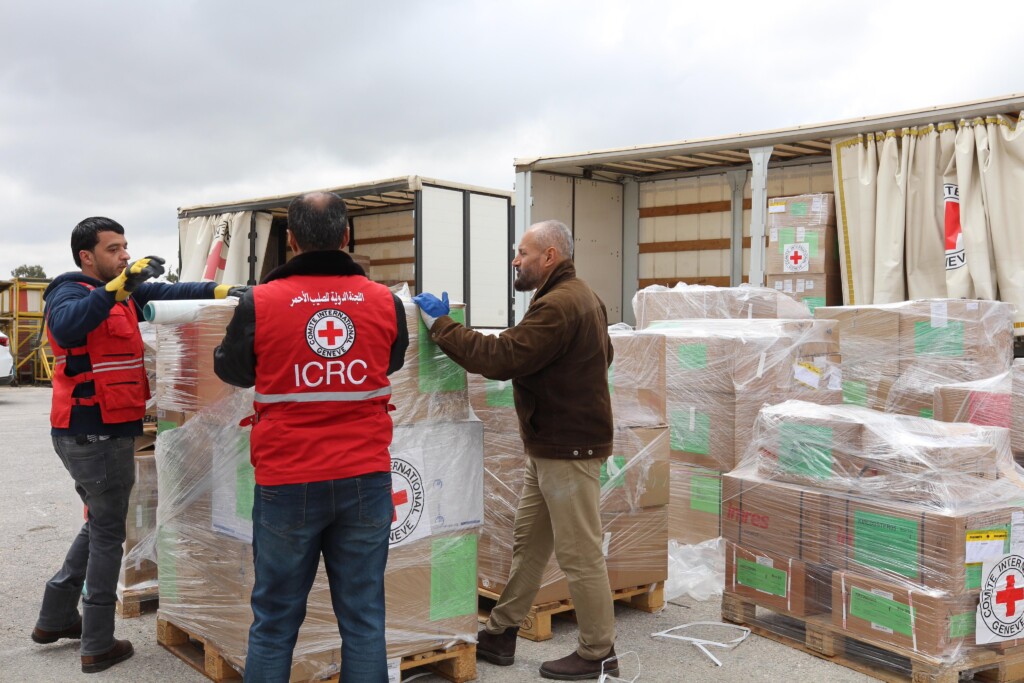
The first cargo shipment of emergency medical items from the International Committee of the Red Cross (ICRC) in Sudan arrived in Port Sudan yesterday. The shipment reportedly contains “8 tonnes of humanitarian cargo which includes surgical material to support Sudanese hospitals and volunteers from the Sudan Red Crescent Society”.
Solutions
Conflict Analysis and Resolution Scholar Adeeb Yousif said that there are three steps that would make a difference in Sudan.
The first would be a ceasefire agreement with third-party monitoring mechanisms. The second would be the protection of civilians and pressure on any armed group using civilians as a shield, and the third would be administering lifeline operations to support the increasing number of internally displaced people in Sudan.
‘The focus should be on preventing long-term protracted conflict’ – Adeeb Yousif
Yousif said that clear mechanisms for monitoring the enforcement of a ceasefire agreement are crucial and might help Sudan avoid continued chaos in the future. “The focus should be on preventing long-term protracted conflict.”








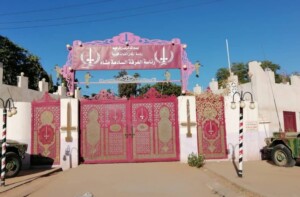
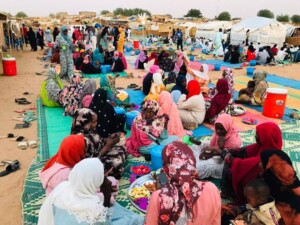

 and then
and then